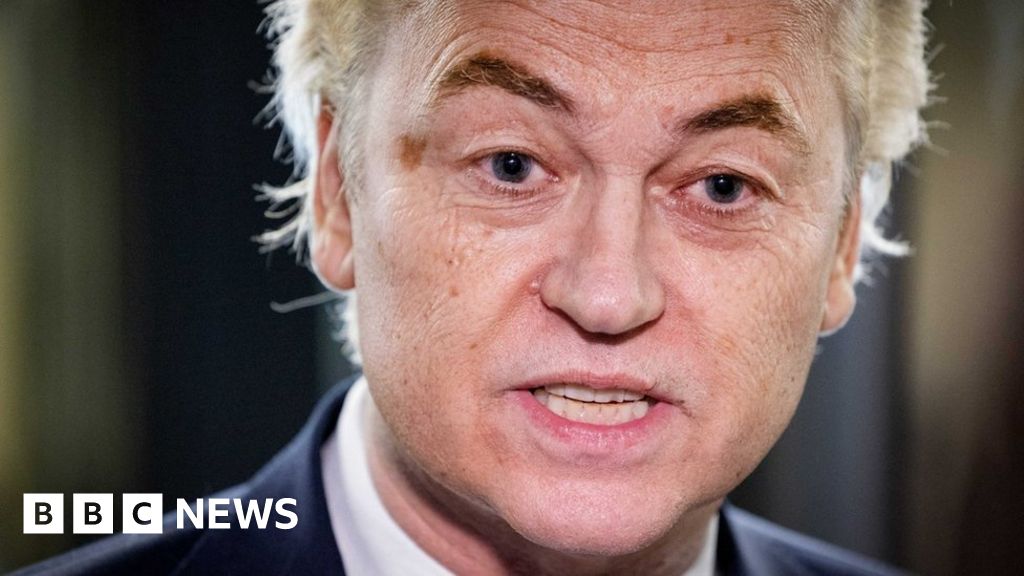Image source, EPA-EFE/REX/Shutterstock
Geert Wilders' victory last year shook Dutch politics, sending shockwaves across Europe
Dutch populist anti-Islam leader Geert Wilders has abandoned his bid to become prime minister, despite his party's dramatic victory in the 2023 elections.
“I can only become prime minister if all parties in the coalition support him. That was not the case,” he wrote on X, formerly known as Twitter.
His Freedom Party won the most votes last year, but needed the support of other parties to form a coalition.
Talks continue with three other parties regarding the form of the new government.
The negotiator leading the latest round of talks, which concluded on Tuesday, is scheduled to submit his report to Parliament on Thursday.
Wilders wrote in his letter on Wednesday evening: “I want a right-wing government. Less asylum and immigration. The Dutch people first. The love for my country and my voters is great and more important than my position.”
Wilders, 60, has spent months in talks with the center-right liberal VVD party, the New Social Contract (NSC) party, and the BBB farmer parties to try to form a coalition government.
The leaders of those three insisted this week that the only way they would be willing to move forward is if all four party leaders agreed not to play a role in government, according to Dutch public broadcaster NOS.
It was not immediately clear whether a consensus figure for the position of prime minister had been reached.
A parliamentary debate on the issue is also expected on Thursday when Kim Potters, the man running the talks between the four parties, presents his findings.
He is expected to announce that the parties are ready to form a minority government with an “extra-parliamentary cabinet,” which means that none of the four party leaders will hold ministerial positions, but will remain an MP.
It is unclear exactly who will be prime minister and who will serve in the government. After 14 years of Mark Rutte's rule, the next Dutch government will have a more personal prime minister, while ministers could be chosen from outside politics as well as from within.
This type of government is favored by New Social Contract leader Peter Umtsigt and Liberal Party leader Dylan Jeselgosz. It will be handed a shortlist of policies that must be adhered to, giving Parliament wider powers, although how it will work remains a mystery.
The last time a prime minister did not come from the largest party in the Dutch government was in the 1980s. The last time a Dutch prime minister was not the leader of one of the ruling parties was in 1918, according to Dutch media.
The Freedom Party's victory last year not only shook Dutch politics, but also had repercussions across Europe, as the Netherlands is one of the founding members of what is now the European Union.

“Unapologetic tv specialist. Hardcore zombie trailblazer. Infuriatingly humble problem solver.”






More Stories
SNCF: French high-speed trains disrupted by ‘coordinated sabotage’ ahead of Paris Olympics opening ceremony
Macron Responds to Left-Wing Efforts to Rule France – Politico
At least 229 killed in landslides in Ethiopia | Weather News